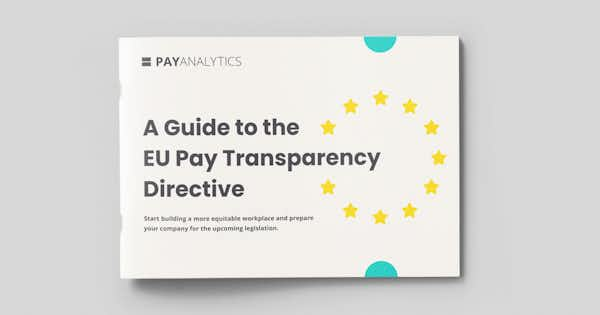Se préparer à la directive européenne sur la transparence salariale | Téléchargez gratuitement notre E-book

Pay Equity Laws in Portugal: Employers’ Obligations for Reporting and Response
Over the last several years, Portugal has strengthened its pay equity laws. They emphasize transparency, and employers with gender pay gaps may be asked to create a pay equity evaluation plan. This short article provides information to help employers in Portugal be prepared and proactive.
Pay equity legislation in Portugal
After sustaining a major blow early in the Covid-19 pandemic, Portugal’s economy recently rebounded, growing at the sharpest rate in years. As more international organizations look to do business in Portugal, they will want to familiarize themselves with the nation’s pay equity laws.
Portugal’s pay equity laws are noteworthy for their focus on transparency as a way to fight gender-based pay discrimination in its labor force. The driving legislation is Law 60/2018, which took effect in 2019. The government annually publishes gender pay gap data, not only nationally and by industry sector, but at the individual company level.
Initially, this legislation applied only to organizations with 250 or more employees. As of 2021, though, employers with 50 or more workers need to comply with the following requirements.
Key requirements
Formalized, transparent pay policies. This means that each organization’s policies must include a standardized and objective way to evaluate job functions. (For instance, seniority, merit, and productivity.)
Ongoing reporting of statistical pay data. Prior to Law 60/2018, Portugal already required pay data to be reported to the government under its Labor Code. However, Law 60/2018 changed what the government does with the data. The government’s Ministry of Labor, Solidarity, and Social Security now publishes gender pay gap information in the first half of each year. This includes data by company, profession, and qualification, as well as nationally and by industry sector.
After employers submit their pay data, the government takes up to 60 days to review it and check for pay discrepancies between men and women.
If a discrepancy is found, the government inspection authority will notify the employer that they need to submit an evaluation plan. The employer will then have 120 days to create and submit the plan. The goal of the evaluation plan is to show that the pay discrepancies are justified and/or map out a pathway for eliminating them.
- Discrepancies may be justified if they are based on objective criteria that apply across genders. (Like seniority, for instance.)
- The evaluation plan should have a one-year time period.
- After one year, the employer must report the results back to the government. Any remaining gender-based differences that can’t be explained by objective criteria would be considered discrimination.
It is also worth noting that Portugal’s law gives employees or their unions the power to request a government investigation of suspected pay discrimination cases. If the investigation finds in favor of the employee, the employer needs to address the pay difference within 180 days.
In short, Portugal’s pay equity legislation means that after they submit their statistical data to the government, employers may need to be ready to respond to any possible request for an evaluation plan on fairly short notice.
How PayAnalytics can help employers in Portugal comply with pay equity laws
PayAnalytics is a holistic solution that helps organizations in Portugal to adopt a proactive approach to pay equity. The software platform makes it easy to analyze pay data and identify any gender pay gaps. This can help employers figure out whether the government might request an evaluation plan and start preparing for it early.
During the process of creating an evaluation plan, PayAnalytics can be used to show that certain pay discrepancies may be justified by accounting for objective factors. In the case of any unjustified discrepancies, PayAnalytics provides suggestions for raises that close the pay gap in the most cost-effective way.
The software also provides valuable insight for formalizing and documenting pay policies. With the graphical interface, users can get a comprehensive overview of their current salary structure. Drill-down capabilities allow for a more in-depth understanding.
On an ongoing basis, PayAnalytics’ Compensation Assistant helps ensure that gender pay gaps stay closed as the employee population changes. With this safeguard to make sure the gap does not re-emerge, employers in Portugal can benefit from additional peace of mind when submitting next year’s pay data to the government.
Please feel free to reach out to us at any time for additional information or a software demo. You can find more information about PayAnalytics here.
Sources consulted
- WTW, Portugal: Law bolsters enforcement of equal pay for equal work
- Reuters, Portugal economy slowing after strongest year in decades
- EPIC, Portugal
- Abreu advogados, Employment law in Portugal: Equal Pay For Women And Men
- Garrigues, New legal measures to promote equal pay between men and women, Labor and Employment Law Portugal Alert 17-2018
Les informations contenues dans cette page ne sont pas destinées à servir et ne servent pas de conseil juridique. L'ensemble du contenu, des informations et du matériel de cet article est uniquement destiné à un usage informatif général. Les lecteurs sont informés que ces informations, juridiques ou autres, peuvent ne pas être à jour.





